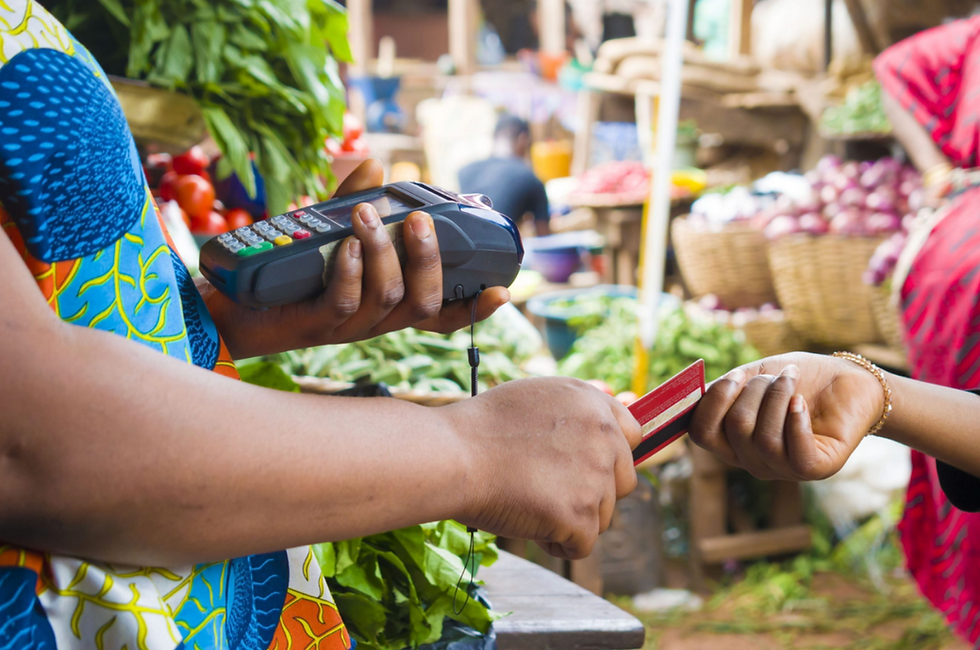Maine Law Review Issue Focuses on State Constitutional Amendment to the Right to Food
- alisoncohenrtf
- Aug 7, 2024
- 5 min read
Updated: Sep 9, 2025
August 7, 2024

On November 2, 2021, Maine became the first U.S. state to constitutionally recognize the right to food, empowering Mainers to affirm their right to food sovereignty. The amendment, which passed with more than 60% of the vote as a referendum on the ballot, is poised to support the People of Maine in addressing widespread food insecurity and corporate control of the food supply.
Preceded by a decade of local food and food sovereignty organizing in Maine, the constitutional amendment helped galvanize organizers and advocates across the country to form the National Right to Food Community of Practice. The amendment has not been without its detractors and naysayers, but what is clear is that the Right to Food as a legal framework, organizing strategy and a narrative change tool has entered the discourse on how to end hunger while supporting local food and farm economies. Other states have proposed similar legislation -- including California, Colorado, New York State and West Virginia -- and membership in the National Right to Food Community of Practice is growing.
Volume 76, Number 2 (2024) of Maine's Law Review Journal, edited by Lisa A. Prosienski, can be read in full here.
Three of the articles were penned by members of the National Right to Food CoP. Excerpts from their articles are below, including links to the full text.
By R. Denisse Cordova Montes, Heather Retberg and Photini Kamvisseli Suarez
On November 2, 2021, Maine voters overwhelmingly supported a statewide referendum approving an amendment to enshrine the right to food in Maine’s constitution. This vote was preceded by a decade of food sovereignty advocacy in Maine. This advocacy was led by small farmers and homesteaders and supported by people looking to opt out of the industrial food system, which is dominated by a few corporate monopolies and promotes charity-based solutions to hunger. This vote was a resounding proclamation by the people of Maine in support of the right to food, the right to save and exchange seeds, and the right to grow, raise, harvest, produce, and consume the food of their own choosing for their own nourishment, sustenance, bodily health, and well-being. Maine’s efforts are connected to a wider national and international community of smallholder farmers—or peasants—and people living and working in rural areas, food system workers, and people experiencing hunger and food insecurity.

Although Maine is the first U.S. state to enshrine the right to food in its constitution, international human rights law firmly recognizes a right to adequate food. The International Covenant on Economic, Social and Cultural Rights upholds “the right of everyone to an adequate standard of living for himself and his family, including adequate food, clothing, and housing, and to the continuous improvement of living conditions.” The right is further enumerated in international law through additional conventions and standards and is continuously being interpreted and analyzed by United Nations expert bodies. Moreover, the ground-breaking adoption of the U.N. Declaration on the Rights of Peasants and Other People Working in Rural Areas, after seventeen years of global mobilization and negotiations by peasant movements, led to the international recognition of their rights. These include the rights to food sovereignty and individual and collective access to natural resources, including land, water, and seeds. This Article examines Maine’s constitutional amendment on the right to food by looking at its food sovereignty origins and by relying on international human rights law. This analysis reflects on how Maine’s right to food could serve as an antidote for the privatization of water and natural resources and pave the road for people to regain access to land and water, reclaim native seeds, restore biodiversity, and promote sustainability and autonomy in a localized food system. Drawing on their involvement in a growing right to food movement in the United States that is made up of small farmers, legislators, advocates, academics, and people with lived experiences of hunger, the authors also reflect on opportunities to translate Maine’s experience to other states with ongoing legislative and organizing efforts focused on the human right to food.
By Smita Narula
Maine’s right to food amendment— which sought to address widespread food insecurity and corporate control of the food supply—proclaims food as a “natural, inherent and unalienable right,” and empowers Mainers to grow and consume food of their own choosing, affirming their right to food sovereignty. This Article makes three key contributions to scholarly examinations of this historic amendment. First, it situates the amendment within the broader landscape of domestic and global struggles for the right to food and food sovereignty. Second, the Article considers how the right to food framework under international human rights law can help define the normative content of Maine’s newly affirmed constitutional right, and the state’s corresponding obligations to uphold that right. Third, the Article proposes legislative and policy reforms to help realize the right to food in Maine, while also considering potential challenges. The Article concludes that despite these challenges, the right to food amendment carries the potential to ensure lasting food security in Maine, while shifting the balance of power in the food system.
By Alexia M. Kulwiec and Tom Starck
The State of Maine is leading the nation in efforts not only to promote production of locally and sustainably grown food, but the right of consumers to grow, produce, and consume the food of their choosing. This includes creation of a constitutional right to food, a right recognized in the global community but not throughout the United States. Many advocates in the United States emphasize the right to food as a human right, advocating for the same attention and protection as other human rights such as the right to life, liberty, freedom from slavery, and freedom from discrimination. The right to food provides individuals with greater access to healthy and sustainable food. This meets the global right to food standards of availability, accessibility, adequacy, and sustainability. A constitutional right to food addresses the challenging regulatory environment for food production and prioritizes access of individuals and families to nourishing food. This constitutional right is not only about access to food as a human right, but it also protects the ability of individuals to grow their own food or to obtain their food from small, local producers whom they trust. This Article approaches the constitutional right to food as a method to mitigate the overwhelming morass of regulations that discourage local food production by smaller independent farms and by consumers themselves. Establishing this right prioritizes the rights of individuals and small producers to produce locally grown, sustainable, and healthy food over regulations that favor larger industrial producers. Legal obstacles throughout the United States impede the ability of homesteaders, home gardeners, cottage food producers, and others to produce their own healthy, sustainably grown food. Impeding regulations include zoning prohibitions on the raising of chickens, front yard gardens, hoop houses, and other land uses. Small farms, increasingly sought out by consumers, are similarly affected. Regulations that negatively impact them include licensing and zoning restrictions; challenges to meat and poultry processing; complex food safety regulations; and regulation of unlicensed eggs, cottage foods, and dairy products. Continuing problems with and access to the U.S. meat processing industry forces local producers to drive long distances for processing, which is harmful to both the environment and to animals raised in humane conditions. Passage of a constitutional right to food and food sovereignty legislation provides an effective method of diminishing the impact of a regulatory system that supports centralization of the U.S. food supply controlled by a small number of corporate producers. It appropriately prioritizes the right of individuals to obtain locally and sustainably grown healthy food. The Maine constitutional right to food and the Maine Food Sovereignty Act provide a helpful blueprint for expanding Americans’ right to food.




